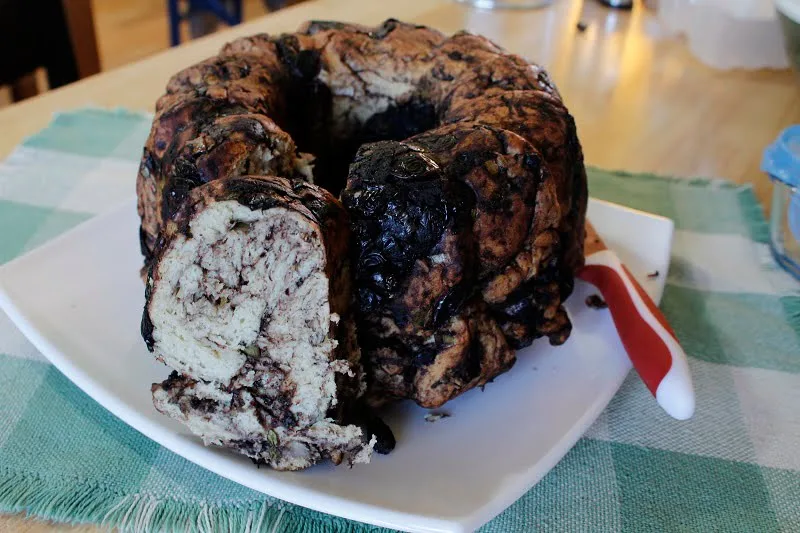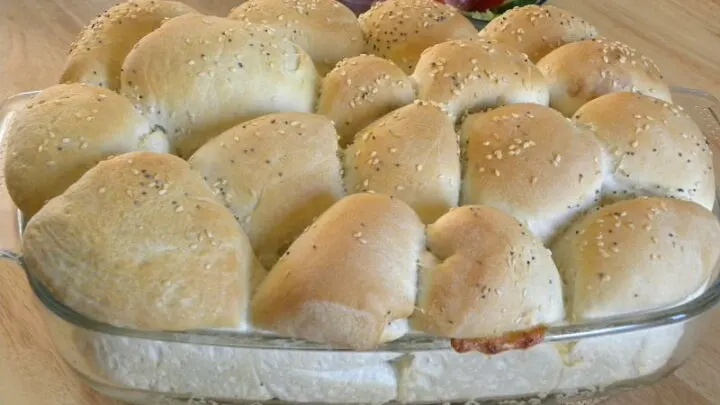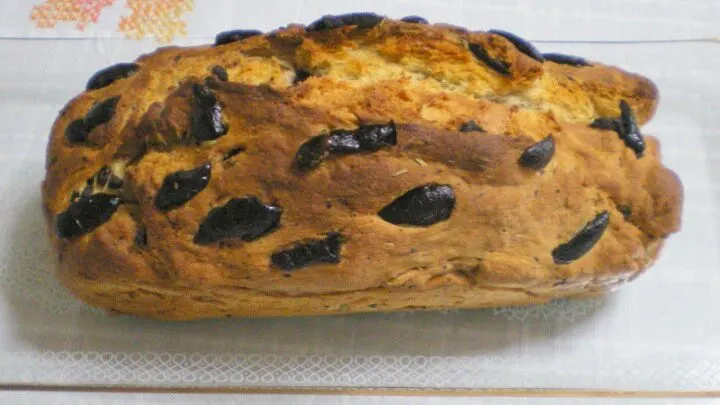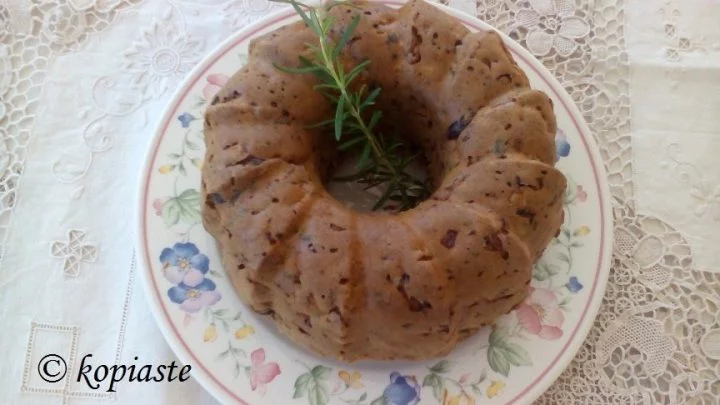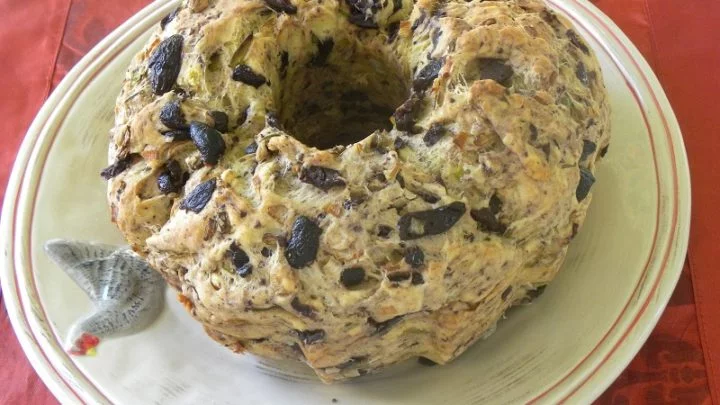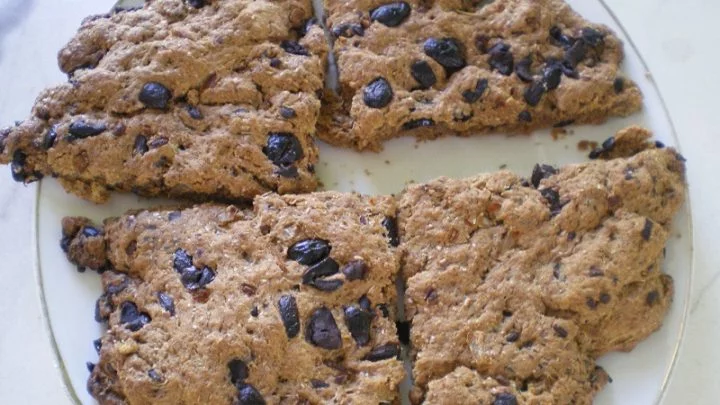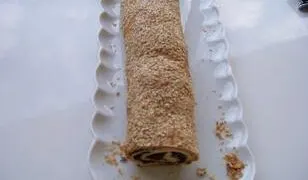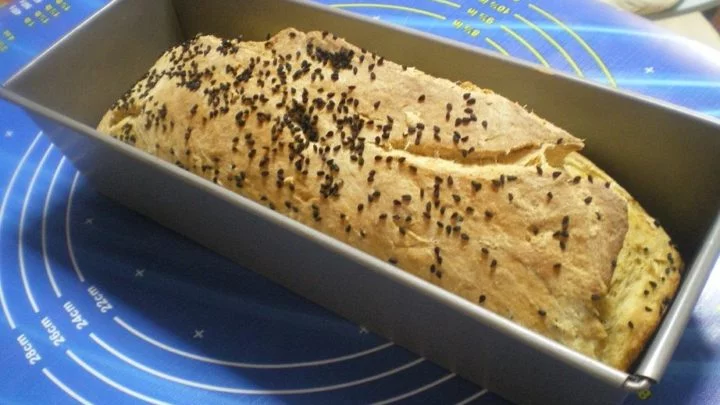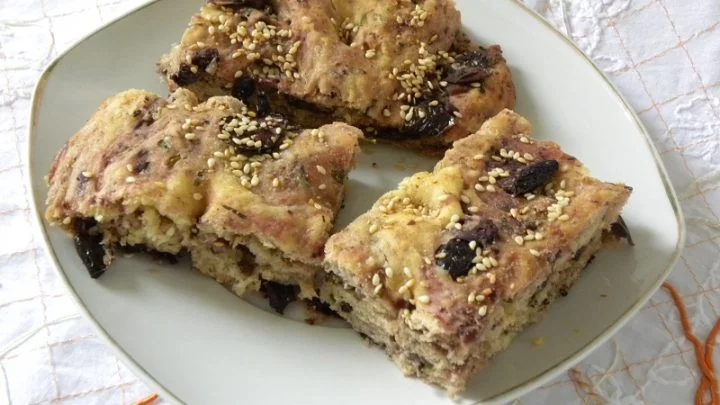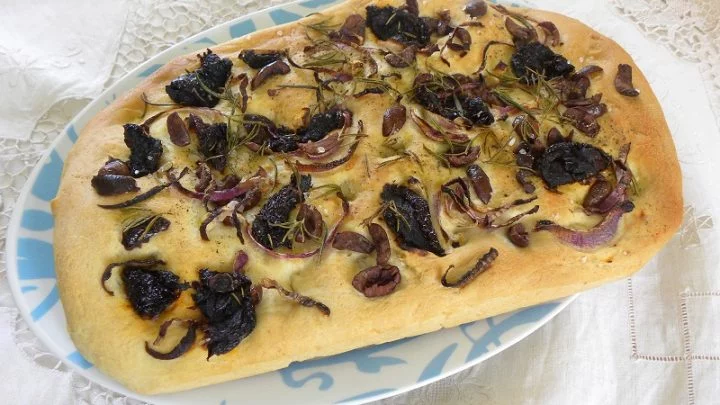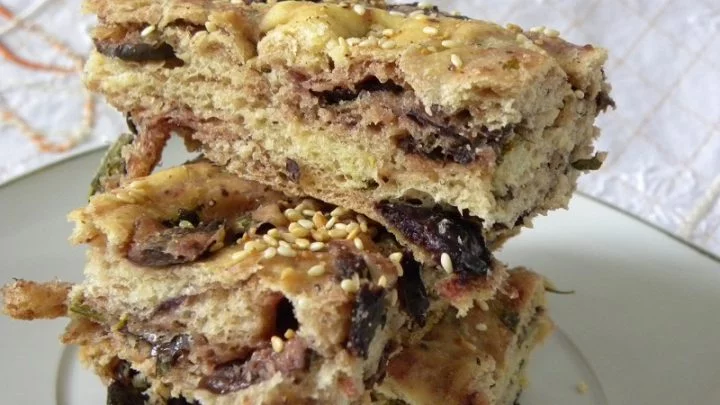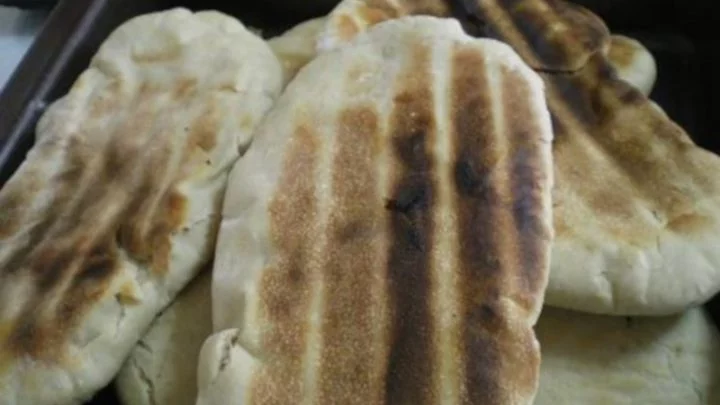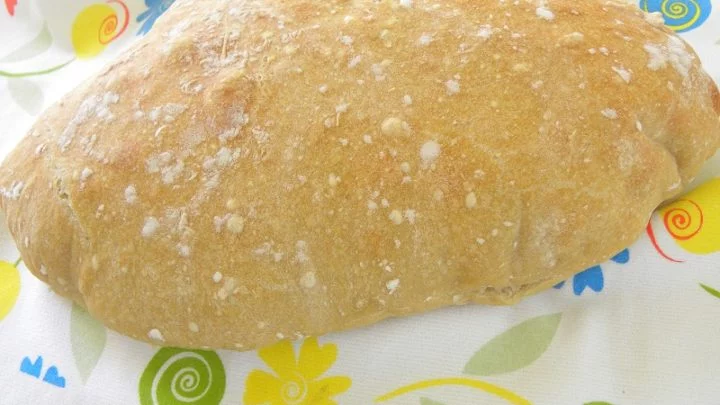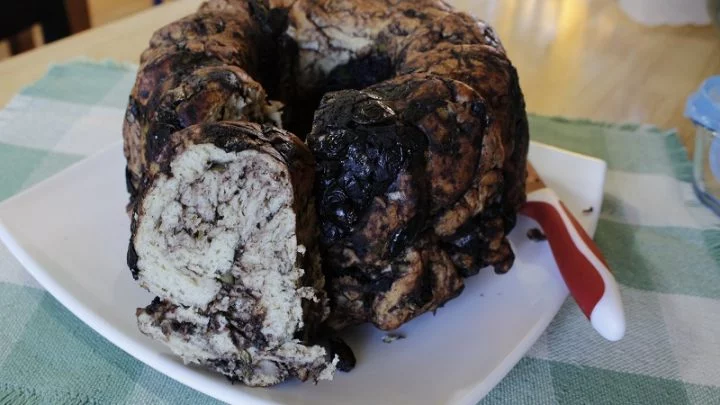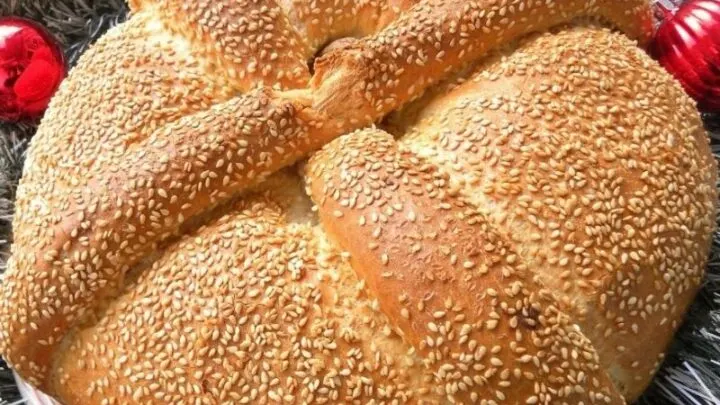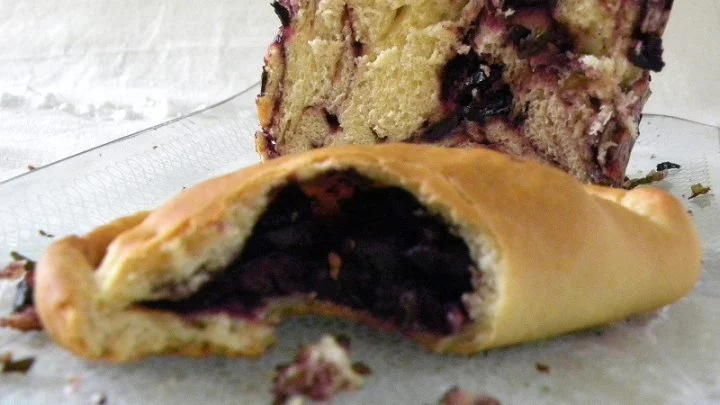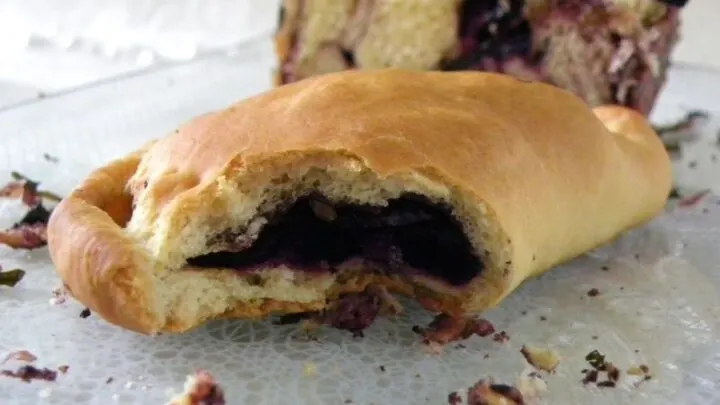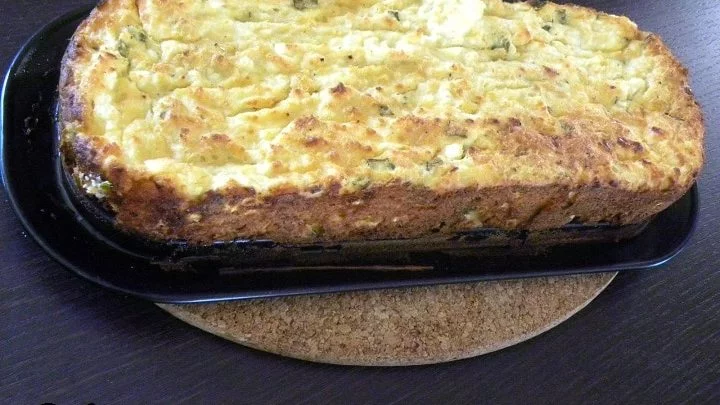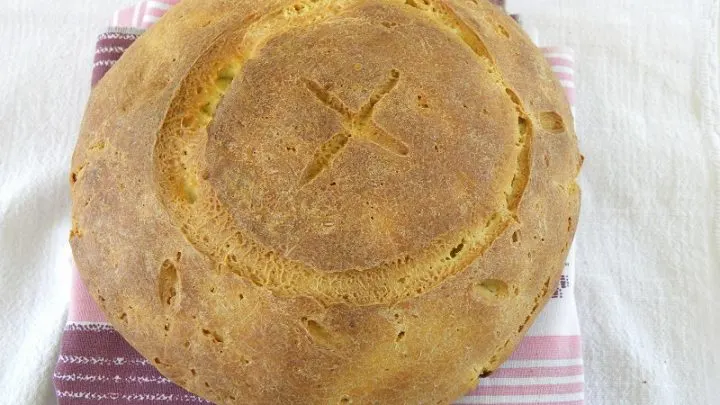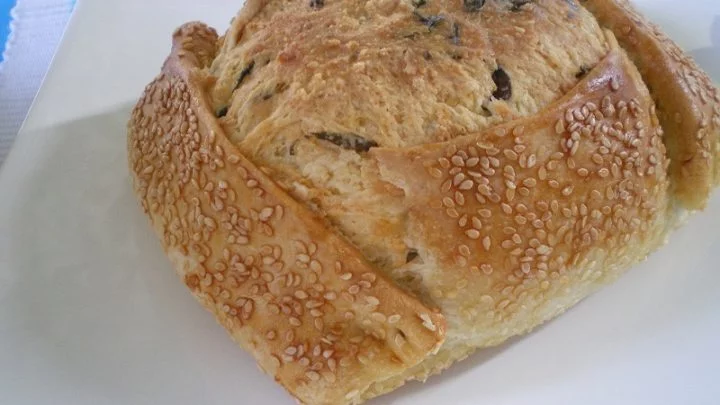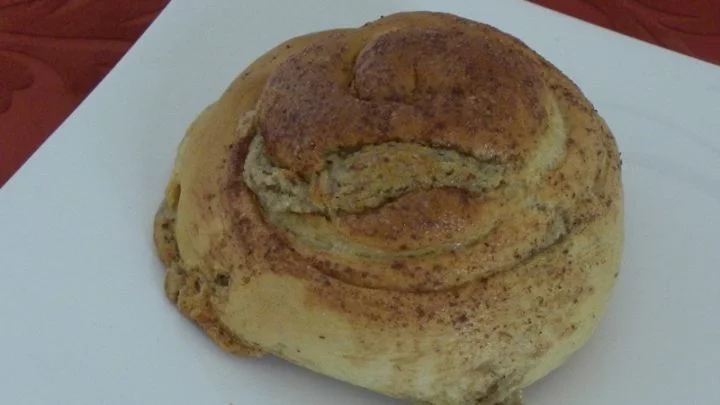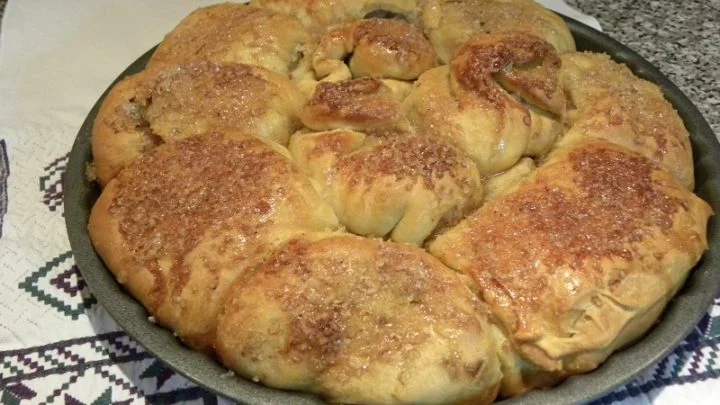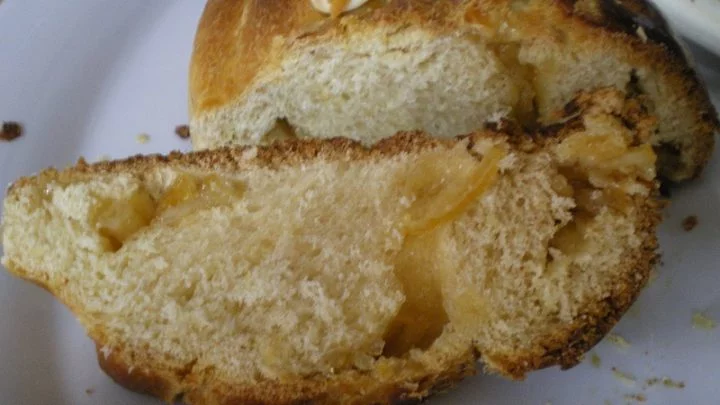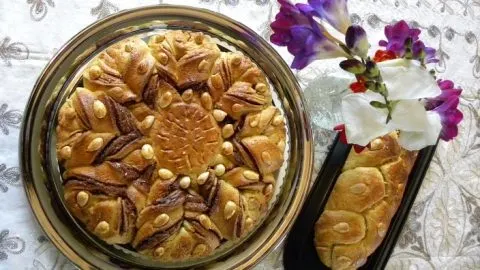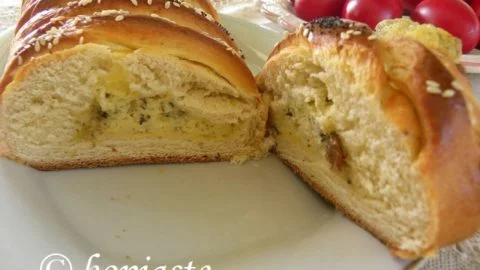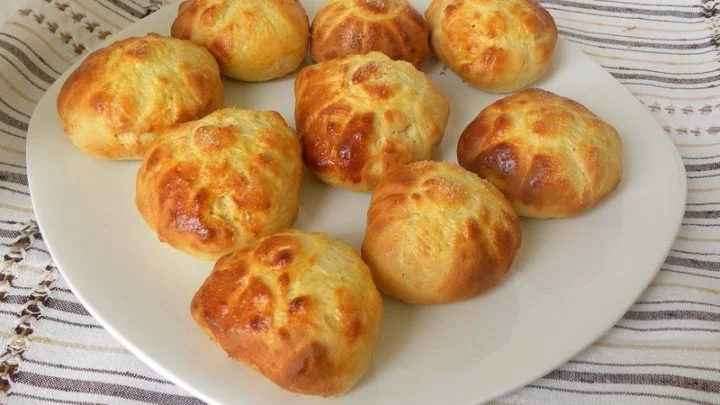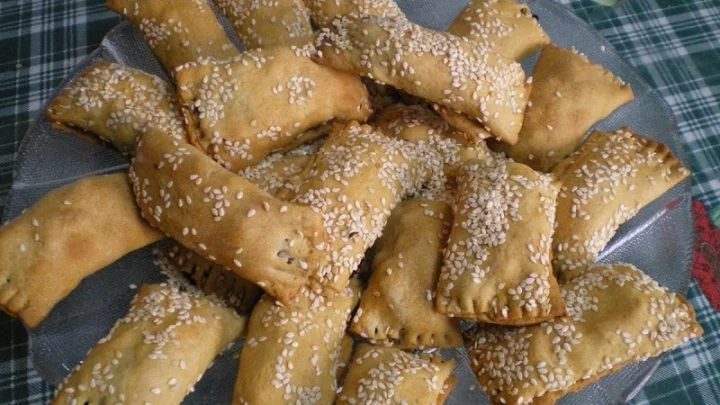Aladoti Eliopita (pr. Ah-LAH-doh-tee Eh-LIOH-pee-tah), is an olive bread made without any oil or any other fat whatseover.
“Aladoti” means with out oil, so this yummy eliopita uses tahini as its source for fat, which makes a delicious and healthy bread for breakfast, brunch or as a snack, especially during the strict Orthodox fasting period, when there are days that no oil whatsoever is consumed.
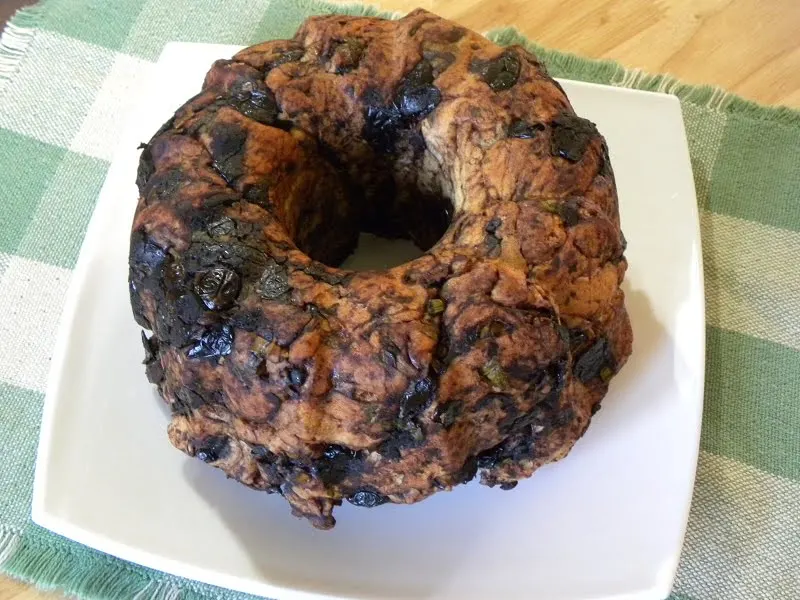
One day I was browsing the internet and saw a recipe in Greek called Aladoti Eliopita, which means olive pie made without any oily substance. Her recipe used puff pastry (can it be made without any butter?) and she also used a tomato sauce in it (can a tomato sauce be made with no oil in it?) and she also baked it on an oiled pan!!
I laughed with the ignorance of some people who name their recipes without knowing what is in their ingredients.
The recipe is based on the Traditional Cypriot Eliopita, where the dough is kneaded with orange juice and the olives used are throumbes*, in which spring onions and mint or fresh coriander is used.
When making the recipe I had some sanguini oranges and used one of them, that’s why the juice looks reddish rather than orange in the video.
In the past I have made an Olive Tahini Cake and I knew that the flavour in the bread would be amazing. During long fasting periods we need food which are healthy, filling and delicious!
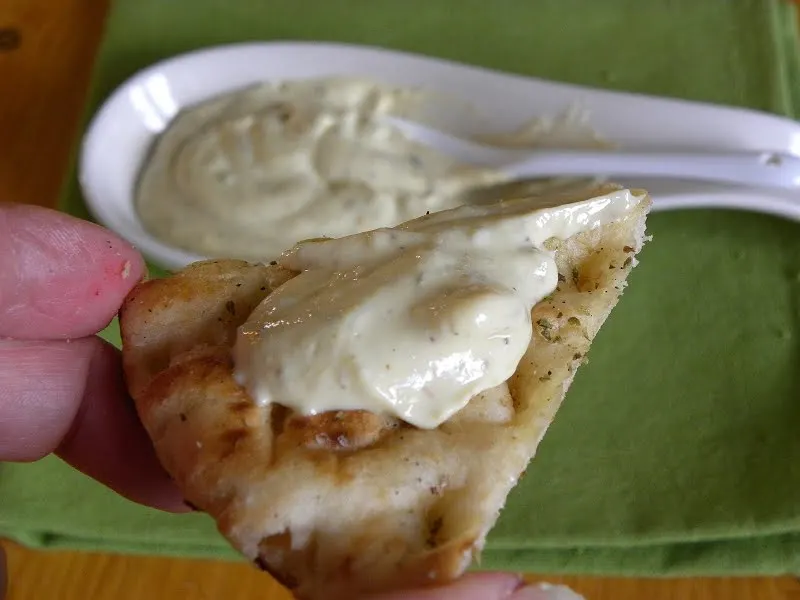
How healthy is this Aladoti Eliopita?
We all know (and if we don’t, it’s time to find out) the health properties of tahini.
Tahini is produced from sesame seeds and it is an excellent source of protein and beneficial omega-3 fatty acids and antioxidants which are essential to our health.
Its main ingredient is olives. Olives are rich in antioxidants, are anti-inflammatory, support heart health, may support bone health and contain beneficial bacteria and enzymes which help with the digestive system.
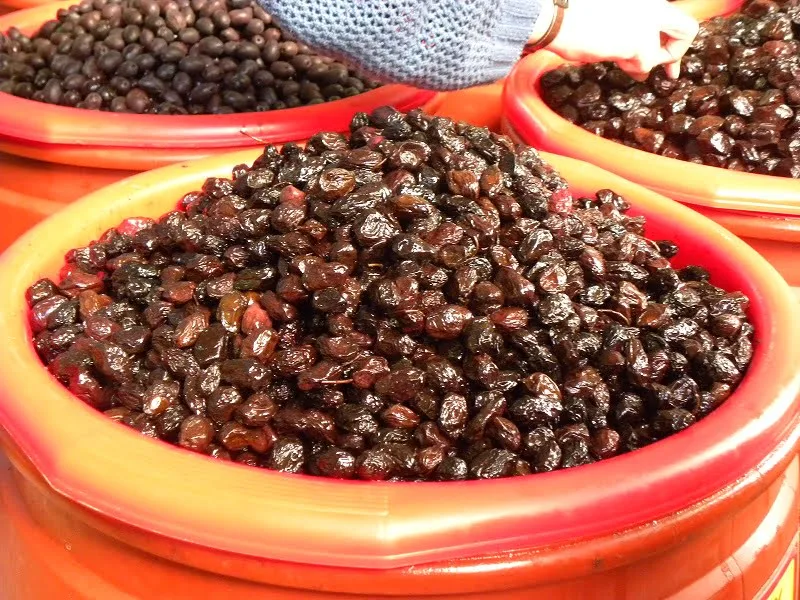
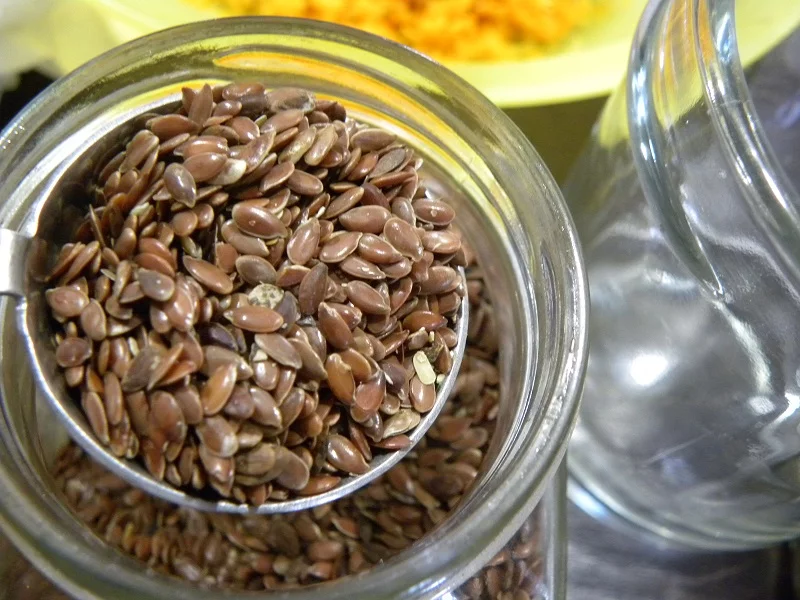
I also added some flaxseed in the bread, which add more omega-3 fatty acids, antioxidants, many vitamins and minerals, magnesium, manganese, etc.
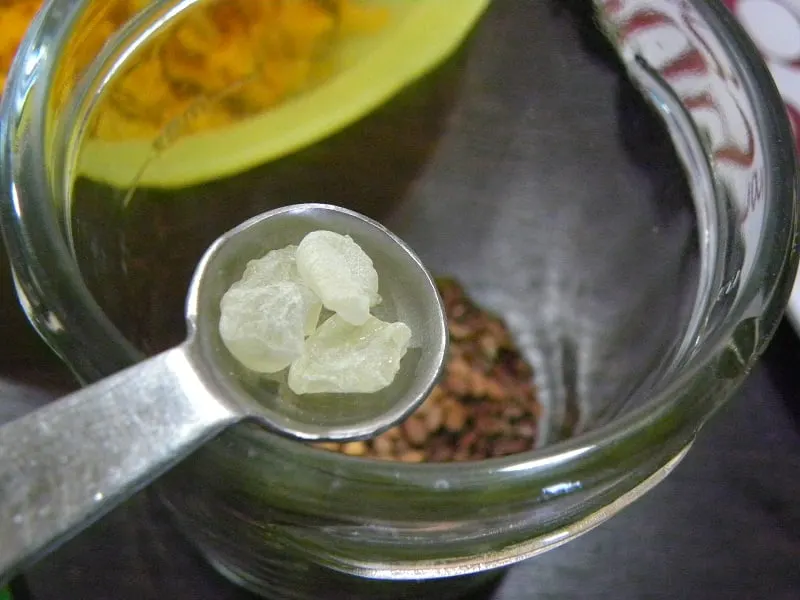
Masticha or mastic has also many medicinal properties.
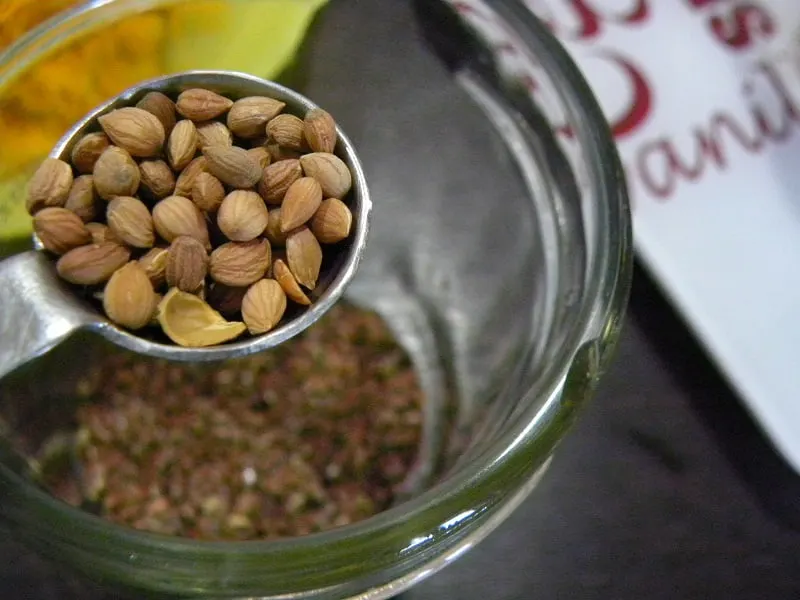
In order to flavour the bread, I added some mastic resins and mahleb (also called mahlab), which are the main spices used for preparing some of the most popular Easter bread. Orthodox Easter is just around the corner, so the house is filled with these lovely aromas, which remind us of Easter!
Orthodox Easter is just around the corner, so the house is filled with these lovely aromas, which remind us of Easter!
If you cannot find masticha, my advice would be to substitute it with another spice of your choice or just leave it out.
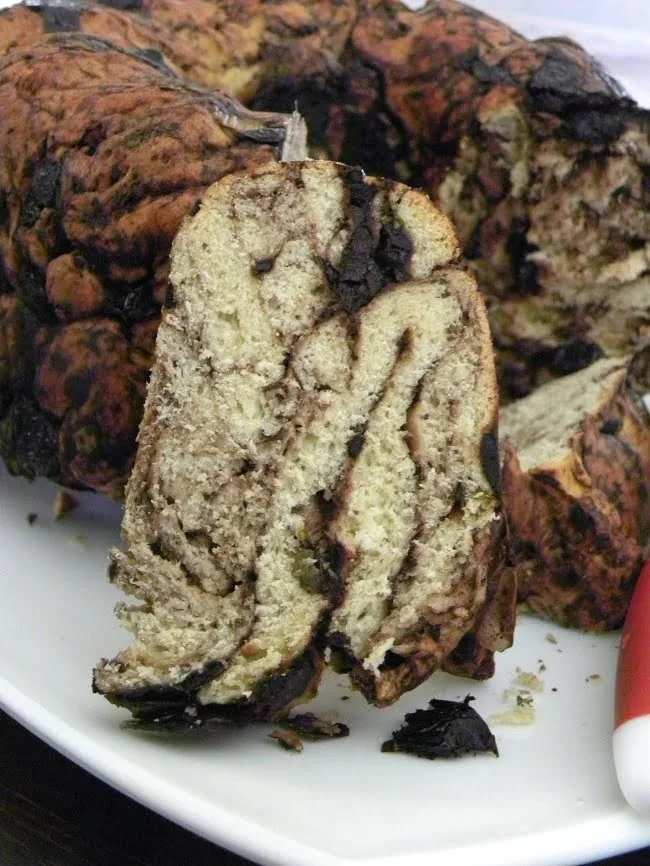
How to make the Aladoti Eliopita:
Pit the olives, cutting them into smaller pieces (or buy pitted olives).
Chop the spring onions and fresh mint and set aside.
In a bowl put the dried yeast, sugar, flour and enough lukewarm water and mix to make a batter. Cover with cling film and a napkin and set aside to rise.
Dilute the tahini with hot water and set aside.
Prepare the spice mixture: You will need: flaxseed, mahleb, mastic resin and flour.
Powder them using an electric spice grinder or a pestle and mortar.
Put the flour with salt and tahini in your stand mixer and using the hook mix until the tahini is absorbed.
Add all the spice mixture, orange juice, vinegar and yeast and mix with your mixer on low speed.
Add some water, if necessary, until the dough holds together.
Add, the olives, mint and spring onions and continue mixing until all the ingredients are incorporated.
Increase the speed and mix for a few more minutes.
Preheat the oven to 180oC.
Empty mixture in a 6-cup capacity – 8 3/4″ diameter x 4″ high Tupperware silicone mold and bake for about forty five minutes or until a knife inserted in the bread comes out clean.
Set aside to cool and invert it in a plate.
Perfect for breakfast or as a snack!
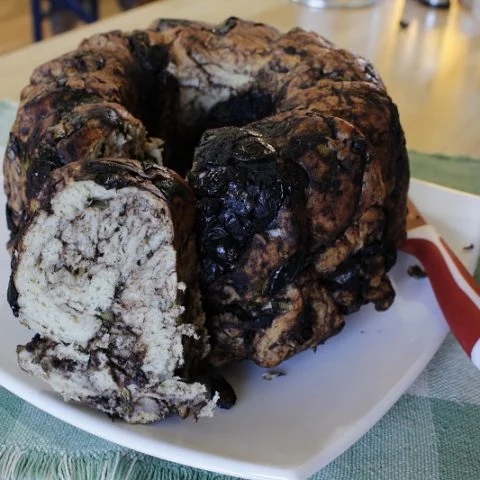
Aladoti Eliopita (Olive bread with tahini)
Aladoti Eliopita (pr. Ah-LAH-doh-tee Eh-LIOH-pee-tah), is an olive bread made without any oil or any other fat whatsover. This yummy eliopita uses tahini as its source for fat, which makes a delicious and healthy bread for breakfast, brunch or as a snack during the strict Orthodox fasting period, when there are days that no oil whatsover is consumed.
Ingredients
Starter:
- 1 sachet of dried yeast (9 gr.)
- 1 tbsp sugar
- 2 tbsp all-purpose flour
- Lukewarm water, enough to make a batter
Spices:Â (makes about 3 tbsp ground)
- 1 tbsp flaxseed
- ½ tsp mahleb
- 3 tears of masticha*
- 1 tbsp flour
Dough:
- 100 grams tahini
- ¼ cup hot water
- 750 grans all-purpose flour
- 1 teaspoon salt
- 1/3 cup orange juice (I used one sanguine and one naval orange)
- 200 grams throumbes* olives pitted and cut
- 2 green onions, white and some green part, finely chopped
- 4 sprigs fresh mint (only the leaves), finely chopped (or 3 tbsp dried mint)
- Water, if necessary
Instructions
- Pit the olives, cutting them into smaller pieces.
- Chop the spring onions and fresh mint and set aside.
- In a bowl put the dried yeast, sugar, flour and enough lukewarm water and mix to make a batter Cover with cling film and a napkin and set aside to rise.
- Dilute the tahini with hot water and set aside.
- Prepare the spice mixture: You will need: flaxseed, mahleb, mastic resin and flour.
- Powder them using an electric spice grinder or a pestle and mortar.
- Put the flour with salt and tahini in your stand mixer and using the hook mix until the tahini is absorbed.
- Add all the spice mixture, orange juice, vinegar and yeast and mix with your mixer on low speed.
- Add some water, if necessary, until the dough holds together.
- Add, the olives, mint and spring onions and continue mixing until all the ingredients are incorporated
- Increase the speed and mix for a few more minutes.
- Preheat the oven to 180oC.
- Empty mixture in a 6-cup capacity - 8 3/4" diameter x 4" high Tupperware silicone mold and bake for about forty five minutes or until a knife inserted in the bread comes out clean.
- Set aside to cool and invert it in a plate.
- Perfect for breakfast or as a snack!
Notes
*Throumbes (θϰÏμπες) is a variety of Greek black olives, which mature on the tree. They are the only olives which can be eaten directly from the tree when they are ripe and they are rather wrinkled. These olives are often cured in salt.
Taste the olives and if they are salty do not add salt. I washed and dried them before pitting them.
If you cannot find throumbes, you can substitute them with Kalamata olives.
If you cannot find masticha, my advice would be to just leave it out.
Nutrition Information
Amount Per Serving Calories 92.8Total Fat 6.73gSaturated Fat 0.91gSodium 133.66mgCarbohydrates 7.22gFiber 1.94gSugar 1.75gProtein 2.38g
Other relevant recipes:
Sweet and Savoury Bread creations
Halloumi-Graviera Pull-aparts
Halloumi-graviera pull-aparts are individual filled bread placed next to each other and baked so that when baked they join into one large bread which can easily be separated by pulling each piece.
Focaccia style Lagana with Olives and Sun-dried Tomatoes
Focaccia style lagana is based on the Greek flatbread but with the addition of olives and sundried tomatoes mixed in the dough.
Cypriot pita bread
Cypriot pitta bread are much different to the Greek pitas. They are flatbread like the other pita but are different in shape and in taste.
Aladoti Eliopita (Olive bread with tahini)
Aladoti Eliopita (pr. Ah-LAH-doh-tee Eh-LIOH-pee-tah), is an olive bread made without any oil or any other fat whatsoever.
Christopsomo - Christ's Bread
Christopsomo, which translates as "Christ's Bread"- pron. Christopsomo also named kouloúra tou Christoú (round bread of Christ), is usually a round loaf often made with the same ingredients as Easter bread. Raisins, nuts, cinnamon, cloves, and nutmeg are just a few of the taste treats found in this traditional sweet loaf.
Zymoto Psomi (Cypriot Sourdough Rustic Bread)
There's nothing more satisfying than making your own bread. Learn how to make the sourdough starter and you will have the best bread ever!
Flaounes (Cypriot Easter Cheese filled Bread)
Flaounes pr. flah-OU-ness (singular flaouna) is a traditional Cypriot Easter cheese bread made with an aromatic yeasted phyllo dough, filled with a special Cypriot cheese, called Pafitiko, made during the Easter period especially for flaounes, Â flavoured with Masticha (mastic resin), mahlepi (mahleb) and mint.
Tsourekia with lemon marmalade filling
Tsourekia (singular tsoureki) pronounced tsou-RHAE-khia, is a kind of brioche sweet bread which is made in Greece during Easter.
Eliopita, Eliotes or Eliopitakia (Cypriot olive pies)
Eliopita, Eliotes or Eliopitakia are Cypriot olive pastries made either as a bread, as a roulade, as turnovers or a pie, to accompany a cup of coffee or tea.
Like this post?
You can hover over this image to pin it to your Pinterest board. Also, please feel free to share it with your friends and fellow bloggers, using the share tools below.
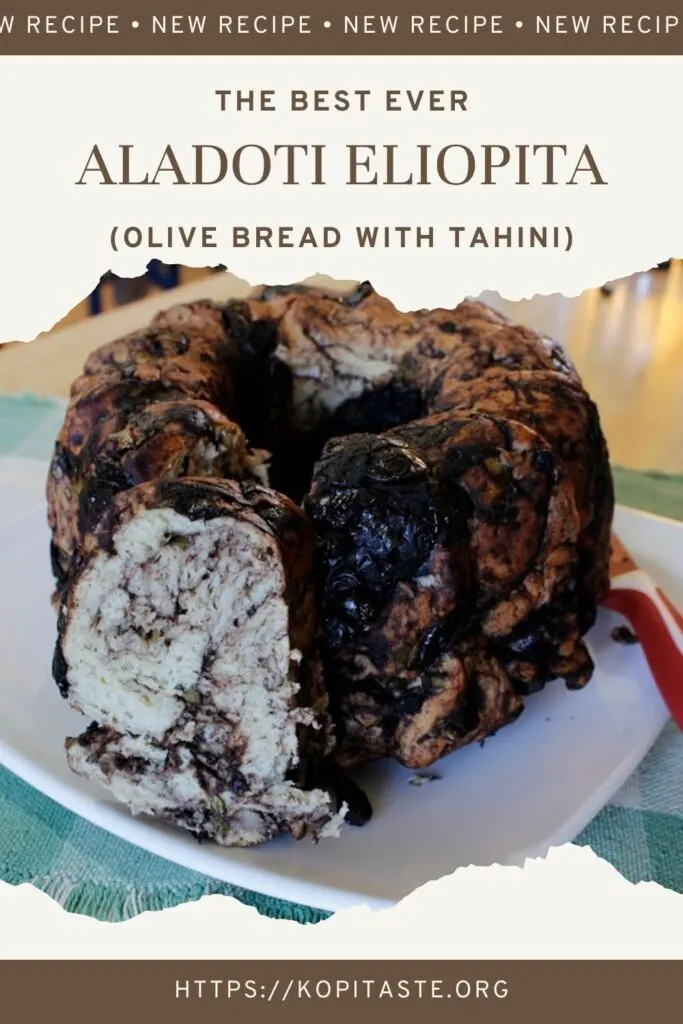
Kopiaste and Kali Orexi!


